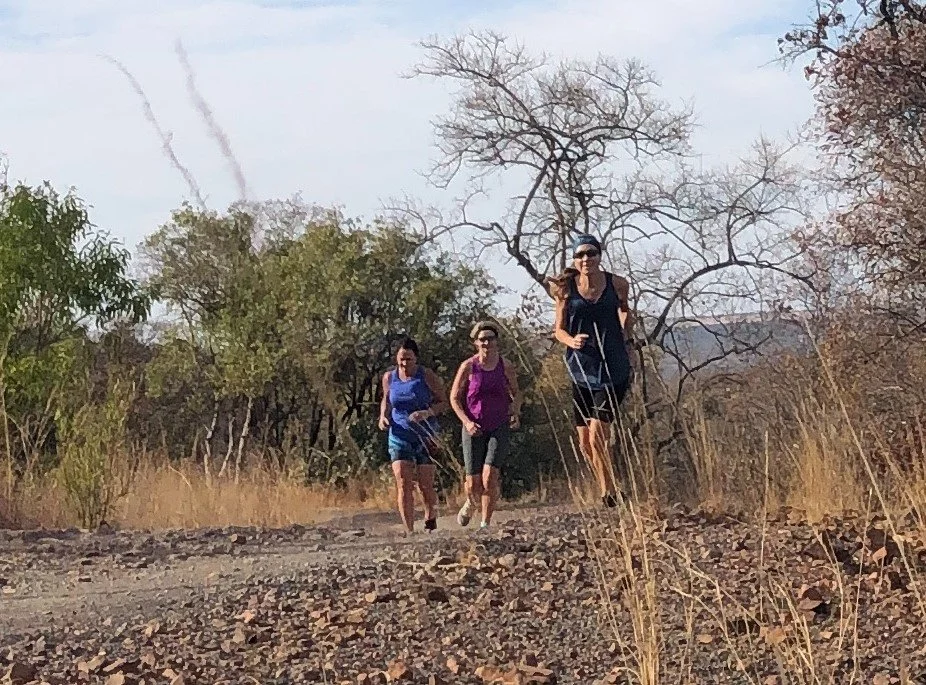Running with Flexibility: A Love Story
When I laced up my new running shoes for the first time at 51, I had no idea I was embarking on a journey that would not only change my physical health but also teach me valuable lessons about psychological flexibility. This concept, central to Acceptance and Commitment Therapy (ACT) (Hayes et al., 2011), has transformed my relationship with running and, by extension, my approach to life's challenges.
Psychological flexibility is about how we adapt to life's changing circumstances, adjust our thinking, and balance our various needs and desires over time (Kashdan and Rottenberg, 2010). It's especially helpful when we face obstacles that could derail us from pursuing what's truly important to us.
This concept encompasses six key skills that work together to help us navigate life's challenges. These skills are often organised into three pillars: Wake up (Aware), Loosen up (Open), and Step Up (Engaged).
The 'Wake up' pillar involves being present in the moment and recognising our thoughts without getting caught up in them. 'Loosen up' is about accepting our feelings, even uncomfortable ones, and learning to detach from unhelpful thoughts. The 'Step Up' pillar focuses on identifying our values - what truly matters to us - and taking action aligned with these values, even when it's difficult.
My First Steps: From Couch to 5K
My running journey began with a Couch to 5K programme. Completing that first 5K felt like an impossible achievement, and for a year, I diligently maintained my three runs a week, determined not to lose my hard-earned progress. Then came the challenge of training for my first half marathon, coinciding with a period of work challenges and personal loss. Running became my escape, a form of what we call in psychological flexibility terms ‘experiential avoidance’ - finding ways to avoid dealing with difficult experiences.
Discovering Psychological Flexibility
Two years later, I discovered ACT during my academic studies and as I delved deeper into psychological flexibility, I began to see its impact on various aspects of my life. As I integrated these concepts into my daily life, I started to understand how the three pillars of psychological flexibility were showing up in my running practice.
The Three Pillars in Motion
The 'Wake up' pillar helped me become more present during my runs, paying attention to my body and surroundings without judgment. The 'Loosen up' pillar taught me to accept discomfort during challenging runs rather than fighting against it. The 'Step Up' pillar encouraged me to clarify my values and take committed action towards them.
Shifting Perspectives: From Goals to Values
One important shift was in how I viewed my running goals in relation to my values. Instead of seeing running as the ultimate goal, I recognised it as a means to honour my value of staying healthy and practising self-care.
This shift in perspective has been transformative. When running is the end goal, an injury can feel catastrophic. But when running serves a broader value of health and self-care, setbacks become opportunities for flexibility. If I can't run, I can still honour my value through other activities like walking or yoga.
This principle extends beyond running. In our careers, for instance, we might focus on a promotion as a goal. But if our value is continuous growth and development, we can find multiple paths to honour that value, even if a specific promotion doesn't materialise.
Embracing Imperfection
Psychological flexibility has allowed me to develop a loving relationship with running. I've learned to be present during my runs, to accept and work with discomfort, and to align my running with my broader values. I've found joy in the process rather than fixating solely on outcomes.
Does this mean I never grumble about the weather, or give up halfway through a run because I'm convinced my legs have turned to lead? Of course not! I'm only human. Sometimes I’m very good at finding reasons to do other ‘important stuff’ instead of lacing up my shoes. Fortunately, psychological flexibility also teaches us to hold these moments lightly. It's not about perfection, but about continuing to move in a valued direction, even when we stumble.
My journey with running and psychological flexibility continues to evolve. I'm grateful for this loving relationship with running, one that nurtures both my physical and mental wellbeing. It's a relationship built on flexibility, self-compassion, and alignment with my core values.
So, the next time you lace up your running shoes, remember: it's not just about the miles you cover or the times you achieve. It's about how running aligns with your values, how it contributes to your overall wellbeing, and how it teaches you to be flexible in the face of life's inevitable challenges. Happy running!
What activity in your life could benefit from a dose of psychological flexibility? Take a moment to reflect on how you might apply these principles to your own journey of personal growth.
References
Hayes, S. C., Strosahl, K. D. and Wilson, K. G. (2011). Acceptance and commitment therapy: The process and practice of mindful change, Guilford Press.
Kashdan, T. B. and Rottenberg, J. (2010). Psychological flexibility as a fundamental aspect of health. Clinical Psychology Review, 30 (7), 865-878.


